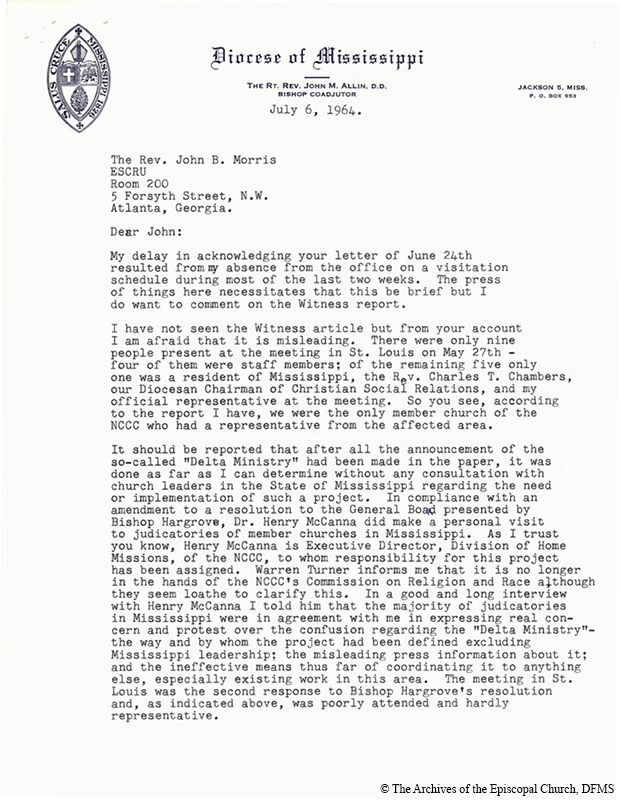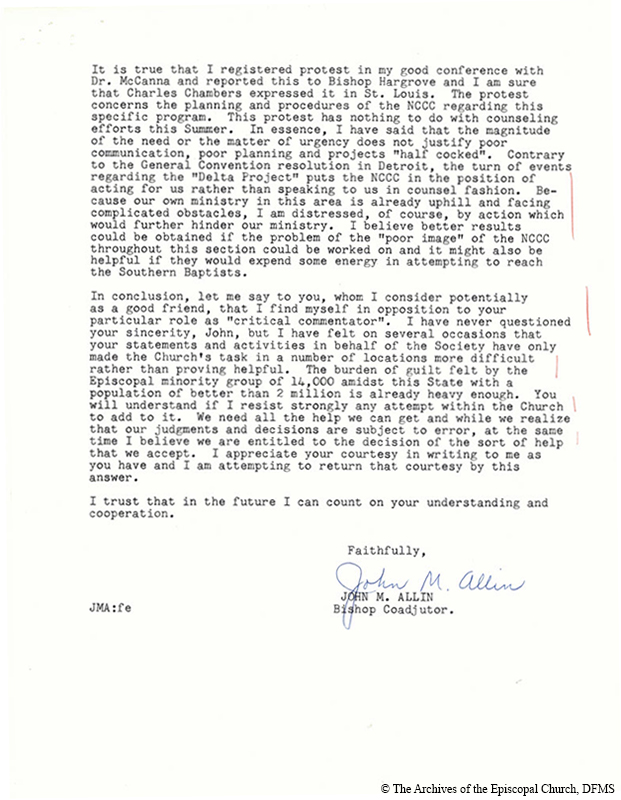Sectionalism
As a bishop in a Southern state embroiled in racial tension, Allin considered sectionalism the most effective method of addressing the problem of injustice. The sectionalist approach focused on involving Mississippians in the effort to effect change rather than outsiders from other states who were often deemed “outside agitators.” Allin’s preference for the sectionalist approach created tension between his Episcopal authority in Mississippi and the work of groups such as the Delta Ministry. Allin participated in and advocated for reform organizations, when dealing with issues of racial tension especially the Committee of Concern, an ecumenical Mississippi effort. Ultimately, both the Committee of Concern and Delta Ministry proved effective in facilitating change in Mississippi. The work of both groups was successful in exposing and addressing the plight of black citizens.
July 6, 1964, Allin wrote to the leader of the Episcopal Society for Cultural and Racial Unity (ESCRU), the Rev. John B. Morris, about the announcement of the Delta Ministry in Mississippi. Allin expressed concern that "it was done without any consultation with church leaders in the state of Mississippi regarding the need or implementaion of such a project."



